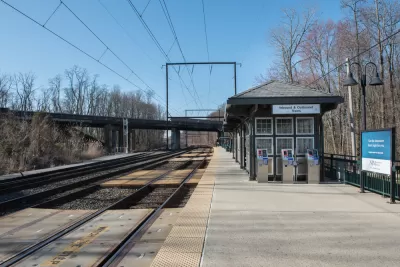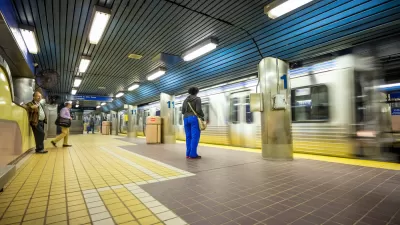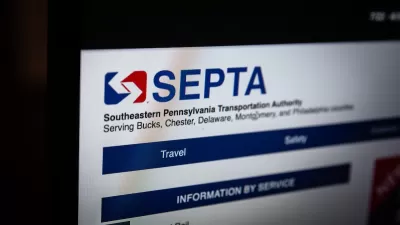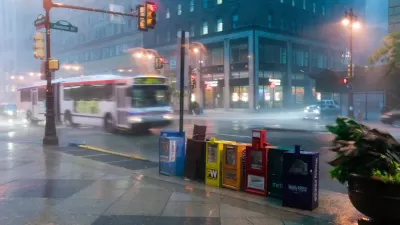Ridership on the nation's commuter rail services has plummeted more than other forms of transit during the pandemic. Serving a more affluent, professional ridership, commuter rail is looking more likely to face long-term cuts after the pandemic.

Patricia Madej writes about the uncertain future of commuter rail in light of the changing patterns of working and living during the pandemic, and the potential that some of these changes could be long lasting.
Madej summarizes the daunting challenges facing the Southeastern Pennsylvania Transportation Authority (SEPTA) in particular:
With ridership down about 85% from pre-pandemic levels, SEPTA Regional Rail is essentially running empty trains, and it’s clear that many of its suburban riders won’t return to five-day-a-week schedules given the appeal of white-collar telework. To sustain and grow Regional Rail ridership, transportation experts say, it should try to appeal to those it hasn’t in the past because of pricey fares and less frequent service. That was true before COVID-19 but may be more necessary now than ever, with the identity of Regional Rail turned on its head.
The article by Madej includes soundbites from several experts about how SEPTA might plan for more equitable service design in the post-panemic future. Megan Smirti Ryerson, associate dean for research at the University of Pennsylvania Stuart Weitzman School of Design, for example, says SEPTA should better integrate Regional Rail service with SEPTA bus, trolleys, and subway service.
“Now is the time to prioritize the needs of people of color, essential workers, and particularly our communities that have been significantly, economically hurt by the pandemic,” Ryerson said. “Transit is an opportunity to lift people up, to give them access to opportunities that they didn’t have before.”
This isn't the first time during the pandemic that commuter rail has faced scrutiny as potentially the most disposable mode of public transit given the declining transit ridership of the pandemic and the likelihood that working from home and migration to suburbs might have a long-term impact on ridership on commuter rail transit.
In November, for example, emergency service cuts at the Massachusetts Bay Transportation Authority (MBTA) cut commuter rail service in favor of bus service, in a move predicted at the time to be a feature of post-pandemic transit planning.
FULL STORY: Without commuters, what will happen to SEPTA Regional Rail?

Maui's Vacation Rental Debate Turns Ugly
Verbal attacks, misinformation campaigns and fistfights plague a high-stakes debate to convert thousands of vacation rentals into long-term housing.

Planetizen Federal Action Tracker
A weekly monitor of how Trump’s orders and actions are impacting planners and planning in America.

San Francisco Suspends Traffic Calming Amidst Record Deaths
Citing “a challenging fiscal landscape,” the city will cease the program on the heels of 42 traffic deaths, including 24 pedestrians.

Defunct Pittsburgh Power Plant to Become Residential Tower
A decommissioned steam heat plant will be redeveloped into almost 100 affordable housing units.

Trump Prompts Restructuring of Transportation Research Board in “Unprecedented Overreach”
The TRB has eliminated more than half of its committees including those focused on climate, equity, and cities.

Amtrak Rolls Out New Orleans to Alabama “Mardi Gras” Train
The new service will operate morning and evening departures between Mobile and New Orleans.
Urban Design for Planners 1: Software Tools
This six-course series explores essential urban design concepts using open source software and equips planners with the tools they need to participate fully in the urban design process.
Planning for Universal Design
Learn the tools for implementing Universal Design in planning regulations.
Heyer Gruel & Associates PA
JM Goldson LLC
Custer County Colorado
City of Camden Redevelopment Agency
City of Astoria
Transportation Research & Education Center (TREC) at Portland State University
Jefferson Parish Government
Camden Redevelopment Agency
City of Claremont





























